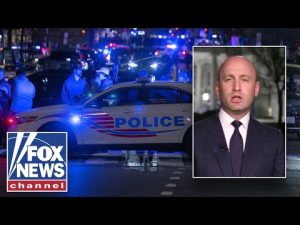As the debates about crime and national security take center stage, the recent events and remarks by President Trump have sparked significant discussion. The President’s passionate speech highlighted his administration’s determination to address the scourge of crime and lawlessness. He conveyed a strong message about his commitment to expanding the presence of the National Guard in cities battling crime waves. The efforts seem to show tangible results, as observed in districts where the presence of Guardsmen has led to a reduction in robberies and murders. The conversation now shifts to whether more leaders will embrace these measures.
In cities like Chicago, the resistance from local leaders has been palpable. Governor Pritzker’s fierce opposition to federal intervention, particularly the deployment of the National Guard, is a prime example. The administration believes that keeping federal resources at bay undermines efforts to combat the rampant violence affecting everyday citizens. Instead of prioritizing public safety, there’s an impression that some political leaders are playing a dangerous game of power tussles, sacrificing security for the sake of maintaining local autonomy.
The President’s speech also tackled a bigger issue: immigration and the perceived threats it poses to national security. Over the last few years, the influx of people from troubled regions around the globe has been a contentious point. The administration argues there is a dire need to reassess who enters the country and under what circumstances. This isn’t about xenophobia, as the left might claim; it’s about ensuring that those who enter are genuinely contributing to the nation, not compromising its safety or values. With a plan to review the status of 20 million people, it displays a commitment to security that contrasts sharply with previous policies.
In an era where policymakers have been criticized for neglecting national security, President Trump’s administration appears to be pivoting in a bold new direction. While some might call these measures drastic, supporters argue that they’re long overdue. The initiative to scrutinize those who may not “love” America or add value to society is about creating a safer environment for hardworking American families. It’s about preventing the next tragedy from striking at the heart of the nation.
With the holidays approaching, the message was clear: the administration wants to prevent any more families from planning funerals instead of festive gatherings. There’s no room for more empty chairs at Thanksgiving tables due to preventable crimes. The administration’s stance is seen as a necessary tough love approach that aims to deliver what many believe is a promise of a safer, more secure America. Whether this is the start of a significant shift in policy remains to be seen, but Americans can be assured that the conversation won’t end here.







